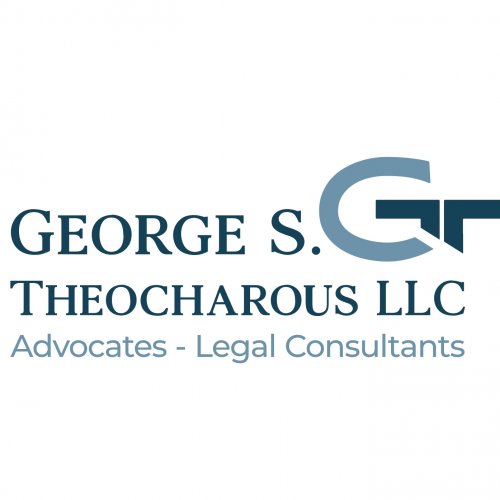Best Due Diligence Lawyers in Paphos
Share your needs with us, get contacted by law firms.
Free. Takes 2 min.
List of the best lawyers in Paphos, Cyprus
About Due Diligence Law in Paphos, Cyprus:
Due Diligence is a legal process that involves thoroughly examining and assessing the risks associated with a property, business, or investment opportunity. In Paphos, Cyprus, Due Diligence is an essential part of any real estate transaction or business deal. It ensures that all relevant information about the property or business is disclosed and verified before making any commitments.
Why You May Need a Lawyer:
Engaging a lawyer experienced in Due Diligence is crucial to protect your interests and ensure compliance with all applicable laws and regulations. Some common situations where you may require legal help in Due Diligence include:
- Purchasing or leasing real estate
- Entering into business partnerships
- Acquiring an existing business
- Reviewing contracts and agreements
- Investing in securities or financial products
Local Laws Overview:
Understanding the key aspects of local laws in Paphos, Cyprus is essential for successful Due Diligence. Here are some important points to consider:
- Cyprus Property Law governs real estate transactions, including Due Diligence requirements.
- The Cypriot legal system is based on common law principles, with influences from English law.
- Compliance with anti-money laundering regulations is crucial in Due Diligence processes.
- Confidentiality agreements may be required to protect sensitive information during Due Diligence.
- Legal advice from a qualified Cypriot lawyer is necessary to ensure compliance with all relevant laws and regulations.
Frequently Asked Questions:
1. What documents should I review during Due Diligence?
During Due Diligence, you should review documents such as property title deeds, financial statements, contracts, permits, licenses, and any relevant legal or regulatory filings.
2. How long does the Due Diligence process typically take?
The duration of the Due Diligence process can vary depending on the complexity of the transaction. It may range from a few weeks to several months.
3. Are there any specific tax considerations I should be aware of?
Yes, tax considerations are crucial in Due Diligence. Consult with a tax professional or lawyer to understand the applicable tax laws, liabilities, and any potential benefits or exemptions.
4. What are the potential risks involved in Due Diligence?
The potential risks in Due Diligence include undisclosed liabilities, environmental issues, zoning restrictions, unenforceable contracts, and legal disputes. Proper Due Diligence helps identify and mitigate these risks.
5. Can I conduct Due Diligence on my own?
While it is possible to conduct Due Diligence on your own, it is highly recommended to seek legal advice from an experienced lawyer. They have the expertise to identify legal issues and ensure comprehensive Due Diligence.
Additional Resources:
For more information and assistance regarding Due Diligence in Paphos, Cyprus, you may find the following resources helpful:
- Paphos Bar Association - can provide a list of qualified lawyers specializing in Due Diligence.
- Cyprus Land and Surveys Department - offers information on property ownership and title deeds.
- Central Bank of Cyprus - provides guidance on anti-money laundering regulations in financial transactions.
Next Steps:
If you require legal assistance in Due Diligence in Paphos, Cyprus, here's how you can proceed:
- Research and shortlist lawyers specializing in Due Diligence in Paphos.
- Contact the Paphos Bar Association for recommendations or referrals.
- Schedule consultations with potential lawyers to discuss your specific needs and evaluate their expertise.
- Select a lawyer you feel comfortable working with and proceed with engaging their services.
- Provide all necessary documents and information to your lawyer for conducting a thorough Due Diligence process.
- Regularly communicate with your lawyer to stay updated on the progress and address any concerns or questions.
- Review the findings of the Due Diligence process with your lawyer and make informed decisions accordingly.
Lawzana helps you find the best lawyers and law firms in Paphos through a curated and pre-screened list of qualified legal professionals. Our platform offers rankings and detailed profiles of attorneys and law firms, allowing you to compare based on practice areas, including Due Diligence, experience, and client feedback.
Each profile includes a description of the firm's areas of practice, client reviews, team members and partners, year of establishment, spoken languages, office locations, contact information, social media presence, and any published articles or resources. Most firms on our platform speak English and are experienced in both local and international legal matters.
Get a quote from top-rated law firms in Paphos, Cyprus — quickly, securely, and without unnecessary hassle.
Disclaimer:
The information provided on this page is for general informational purposes only and does not constitute legal advice. While we strive to ensure the accuracy and relevance of the content, legal information may change over time, and interpretations of the law can vary. You should always consult with a qualified legal professional for advice specific to your situation.
We disclaim all liability for actions taken or not taken based on the content of this page. If you believe any information is incorrect or outdated, please contact us, and we will review and update it where appropriate.















